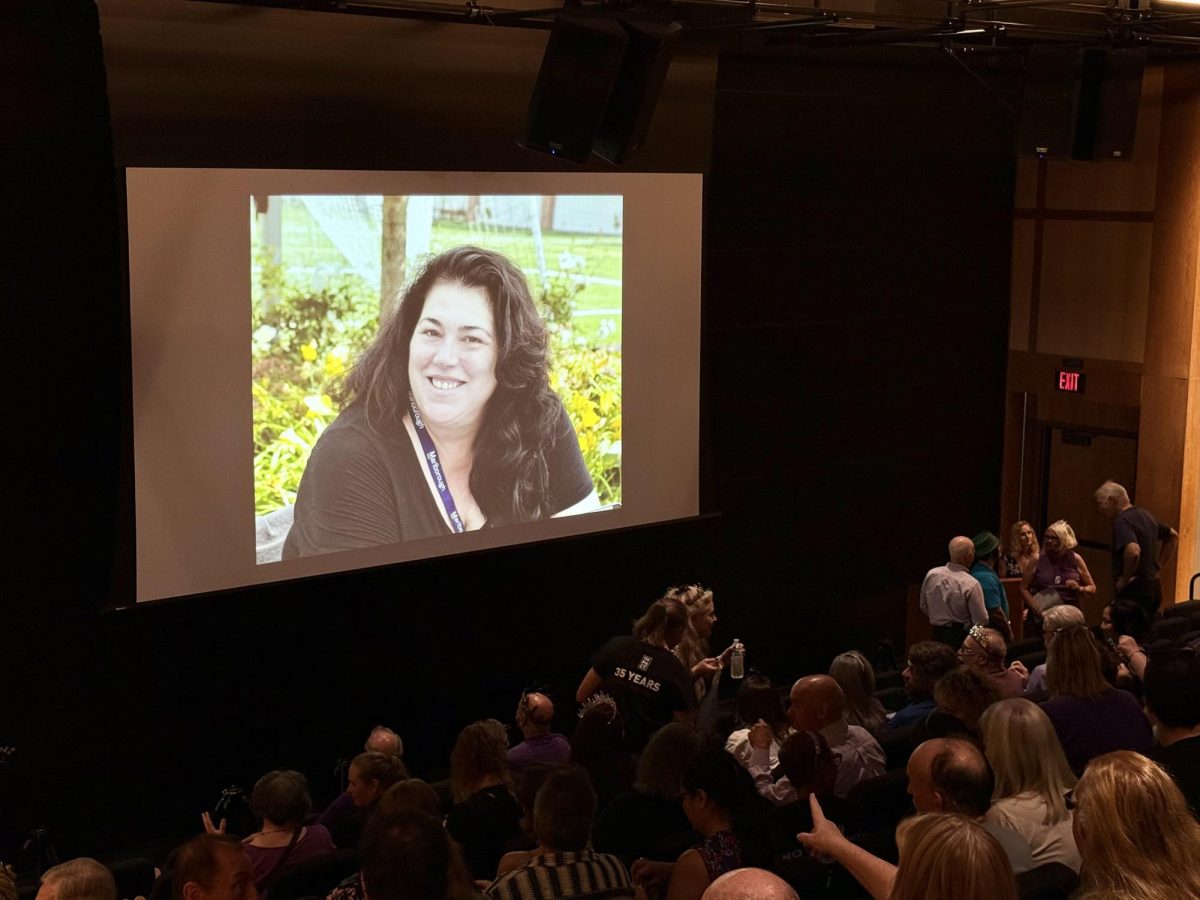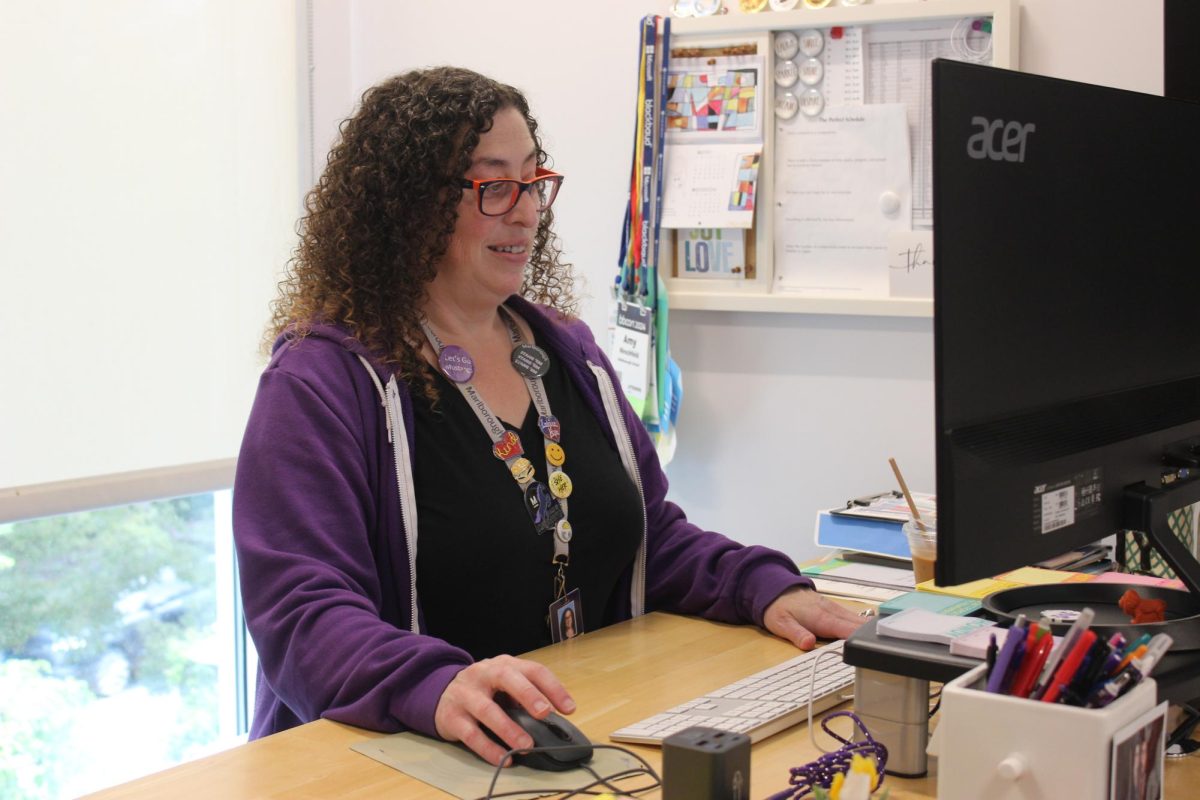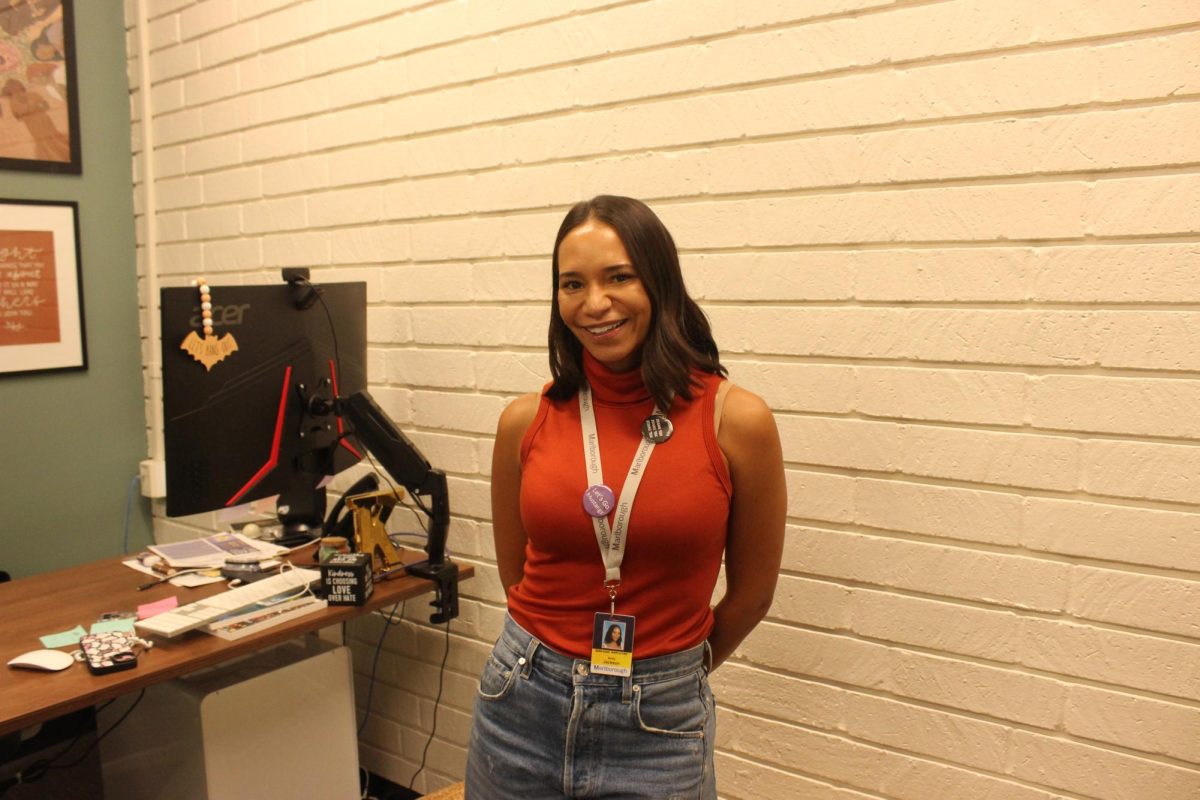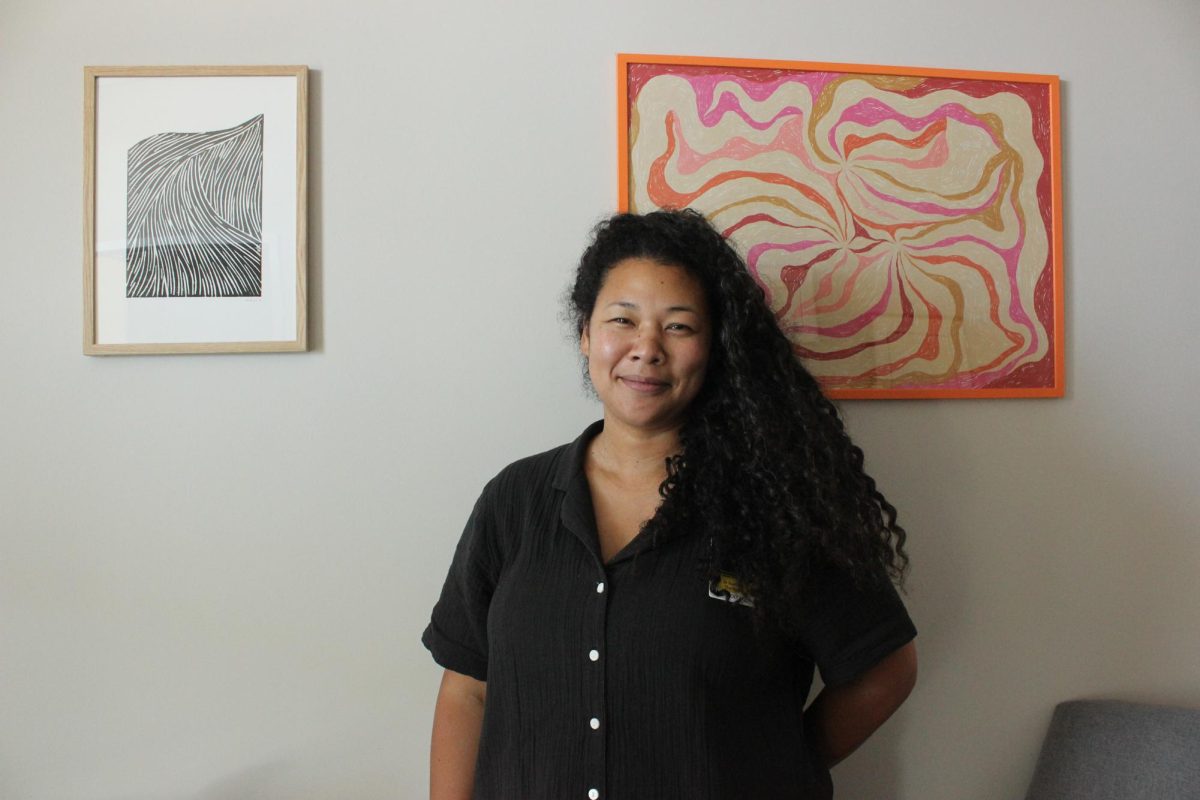Julia ’20 and Delaney ’20, with the support of the facilities and administration teams, have revamped Marlborough’s garbage collecting system through the addition of compost bins. The project was rolled out at the beginning of second semester, following months of intensive planning.
Marlborough has become one of the first schools in the city to adopt a compost system. Delaney said that the noticeable food waste on campus inspired the pair to look for solutions.
“We noticed that Marlborough girls ‘love food,’ but they don’t eat their food, so we just saw plates of food being dumped into the bins,” Delaney said. “It was killing me every time I saw someone pick up a utensil or a plate and just throw it away right after.”
Julia explained that if food were to be sent to landfills, it would continue to release greenhouse gases such as methane which collectively worsen climate change. When food is composted, it decomposes organically and at a significantly faster rate, contributing to usable soil.
The final design of the system differed markedly from its original conception. Julia and Delaney initially reasoned that a compost apparatus would have to be built on campus and maintained by members of the Marlborough community. However, they discovered when speaking to the facilities team that Marlborough’s garbage collector, Athens Services, performs the composting process at their own site –– a “much more convenient” approach, according to Julia.
Even so, the implementation of new trash-sorting categories was destined to be a large undertaking, according to Assistant Facilities Manager Stephan Hodel, and a challenge in for Marlborough’s financial plans, Cafe M supplies and student compliance.
“There wasn’t a school for us to model the program from. All those involved pooled their knowledge to come up with a system we have now,” Hodel said.
Before presenting their plan to the school administration, Julia and Delaney had to ensure that their plan was budget-friendly.
“Any [compost options] that we suggested had to be in the budget. The problem is, we didn’t know what the Cafe M budget was, nor the school budget,” Julia said.
However, once upper management was on board, the financial concerns shifted from Athens’s fees for compost to the cost of garbage receptacles. Not only did the School have to purchase a larger supply of these receptacles, but receptacles also had to be painted green, black and blue stripes, signifying either compost, trash or recycling.
With the physical compost structures in place, Julia and Delaney could focus on the compost itself. They wanted compostable plates, napkins and salad containers. The company that caters to Cafe M, Culinart, worked with its vendors to fulfill the requests, but Cafe M still lacks compostable utensils and soup bowls, both of which contain plastic. Julia and Delaney are still working with Culinart to make Cafe M completely compostable.
Now that new supplies are in place, they said the largest challenge to face the new compost system are now the students, who are adjusting to new trash-sorting guidelines. Delaney said she hopes that students will soon get the hang of it, as she even printed signs signaling which bin certain items belong in. Teachers have been encouraged to post flyers which indicate what items go in each bin as well.
Despite many obstacles, those who developed the initiative said they are proud of the School’s environmental progress.
“This project proves that Marlborough is dedicated to being an environmentally-conscious institution. There’s no better way than to pioneer a compost program,” Hodel said in an email.
Julia and Delaney are members of the Student Climate Emergency Coalition (SCEC), a group of Los Angeles high school students striving “to educate LA schools and communities on climate change and its local impacts,” according to the SCEC website. Thus far, Marlborough is the only school within the coalition to introduce compost on campus.
Julia and Delaney hope to help other schools in Los Angeles adopt compost systems.
“Our goal is to create a document that will have the step-by-step of how to implement a compost system at your school, and then we’re going to try to spread it throughout LA county,” Delaney said.







